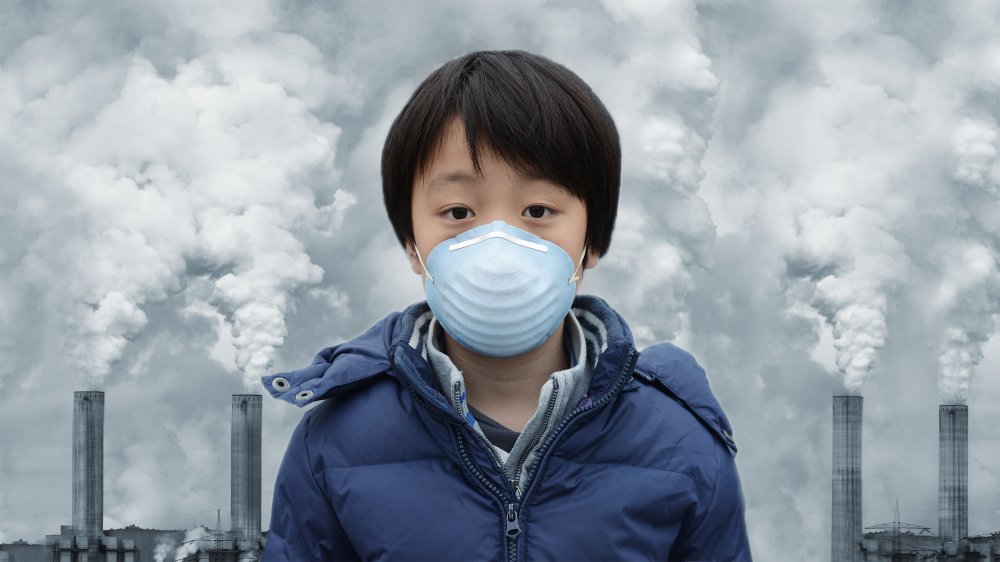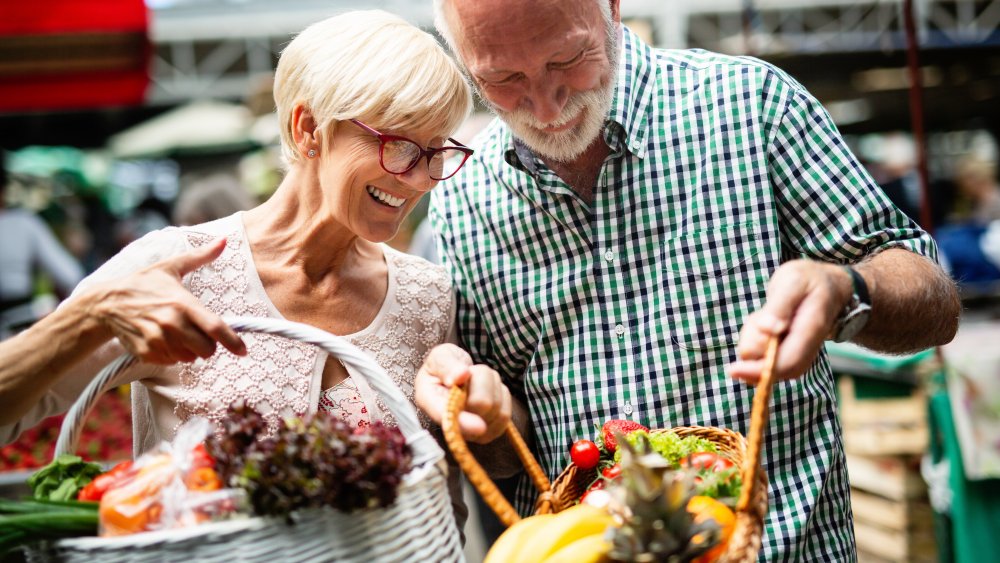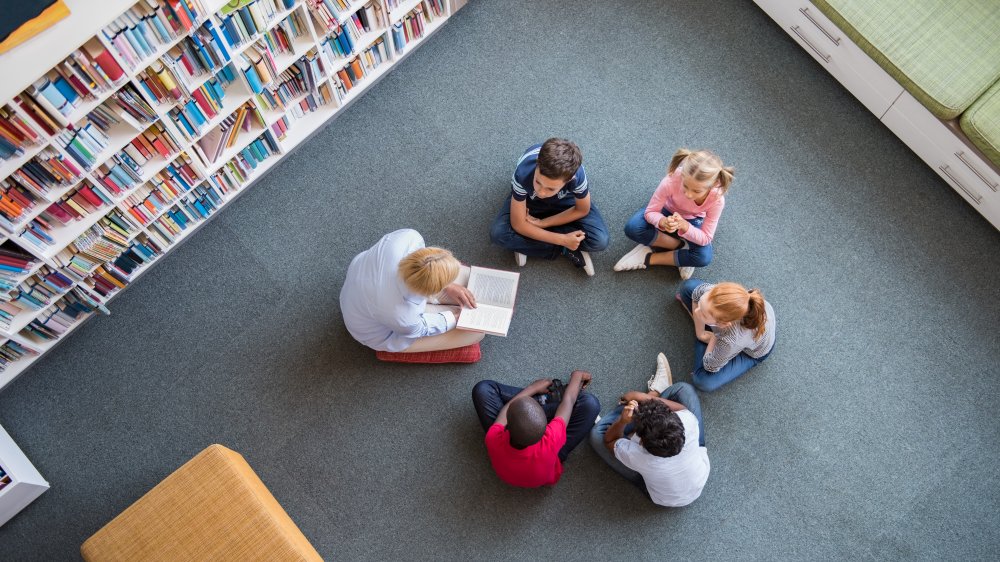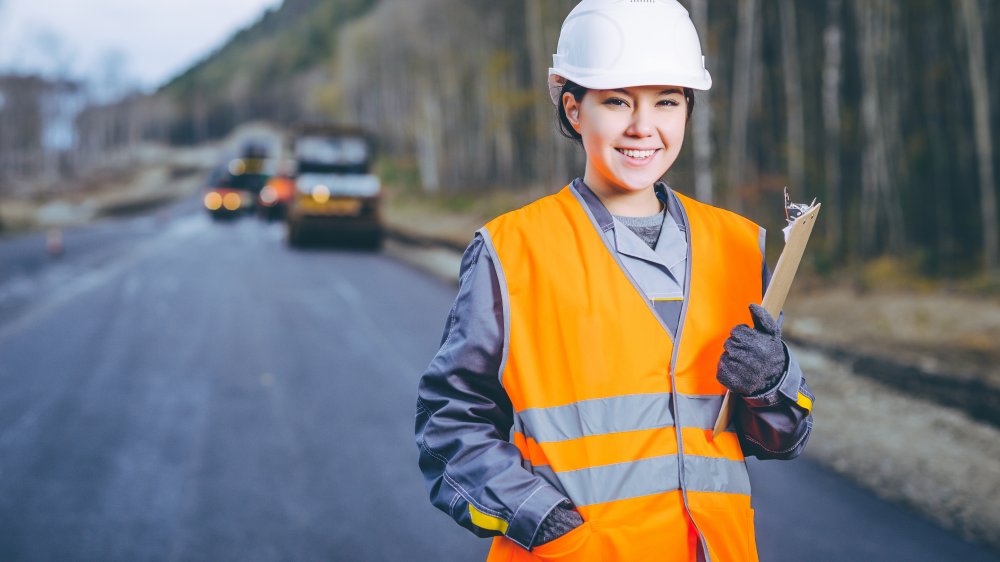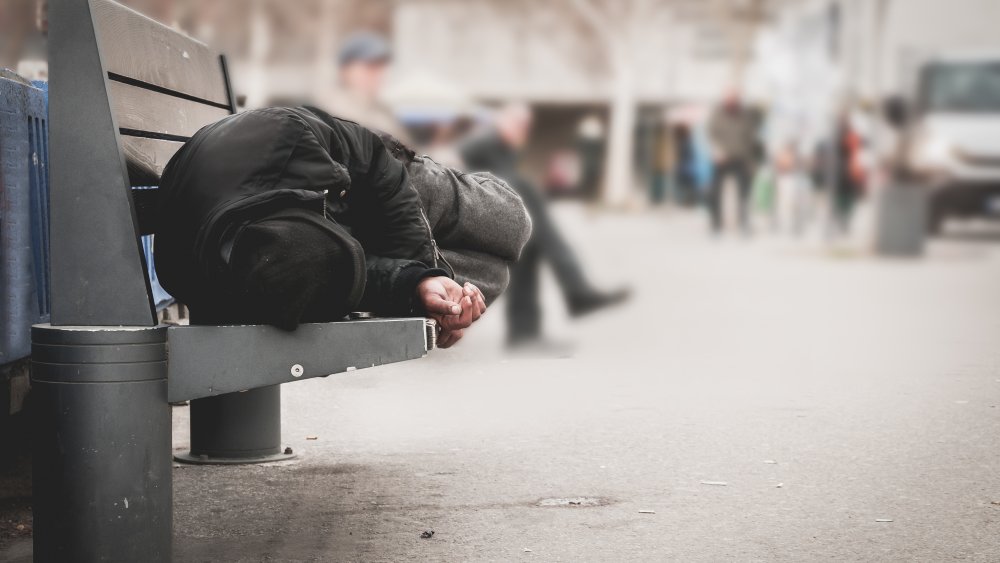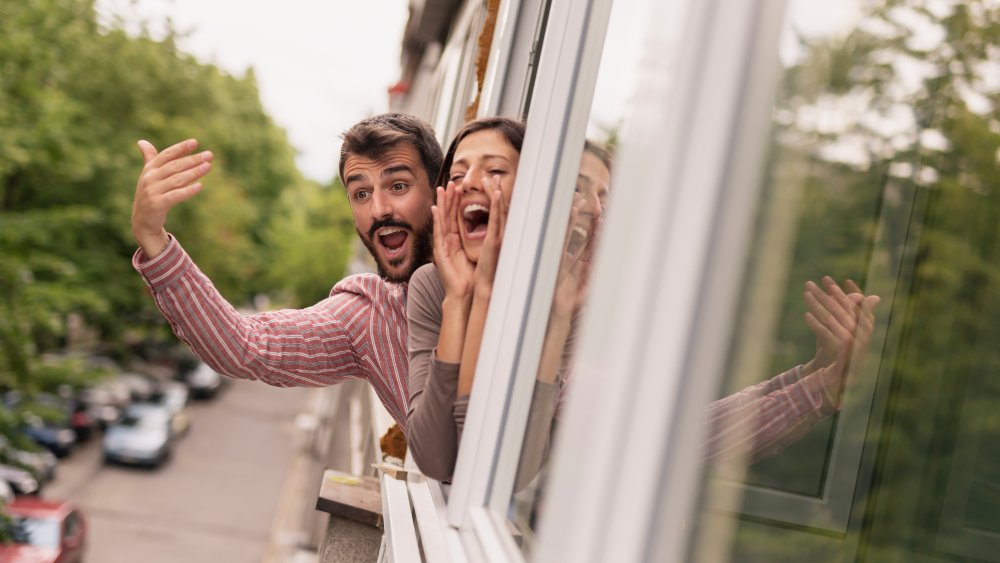Positive Things That Have Come Out Of The Coronavirus
When news of coronavirus — COVID-19 — first leaked into the mainstream media, it was easy to brush it off as something that was happening "over there." To "other people." But it wasn't long before the entire world started to sit up and take notice. This was something that would spread to become a global pandemic, touching people in all parts of the world, and suddenly, everyone was facing something terrifying.
At the same time it was terrifying, it was uniting. It didn't care if you were black or white, male or female, it didn't care who or how you worshiped, or even if you had faith at all. It didn't care about man-made borders or boundaries and the human race found itself all in this together. The names of the dead, the dying, those in critical condition... they were ordinary names of ordinary people with ordinary lives... just like us. And suddenly, we all knew someone at risk: an elderly parent or grandparent, a neighbor or family member whose fight with cancer left them vulnerable, or a friend who struggled with asthma on even the best of days.
But, here's the thing. The pandemic is definitely spreading sickness, fear, and even death. It's bringing out the worst in some people, but in others? It's bringing out the best. And that's what we want to talk about, because everyone needs a light at the end of the tunnel.
China has banned the wildlife trade that started the coronavirus
According to The New York Times, this entire outbreak can be traced back to a seafood and poultry market in China. And to the Western world, China's tradition of eating wild — and sometimes endangered — animals has always been pretty questionable, but post-COVID-19, it looks like there's going to be some good news. According to CNN, China imposed temporary restrictions on "all farming and consumption of 'terrestrial wildlife of important ecological, scientific, and social value.'" They also say that those temporary measures were fully expected to become permanent law.
Public health experts say they're on the verge of legislation that could help change not just the ongoing practice of everyday meals featuring animals like snakes and civets, but to closing loopholes that still allow animals to be killed and eaten under the protections afforded by traditional Chinese medicine. Video footage of the market where the virus was thought to have originated showed animals — raccoon dogs (like the one pictured), deer, and porcupines, among others — held in cages and slaughtered on the spot for customers. And that? That's going to end with this new legislation.
Enforcing the legislation might be an uphill battle, and it'll be awhile before the status of various animals becomes clear. It's a billion-dollar industry, but studies done by Beijing University suggest it's getting less and less popular — in Beijing, 80 percent of those surveyed were against the wildlife trade. And the official end of it would be a very good thing, indeed.
Tens of thousands of lives could be saved by the drop in air pollution
In March 2020, the world was well into global shutdown measures designed to stop — or at least slow — the spread of the virus. According to the European Space Agency (via The Guardian), that had a shocking impact on pollution levels over China. When they compared air pollution and levels of nitrogen dioxide to the levels in the air at the same time the previous year, they found a huge drop. And that's a big deal: nitrogen dioxide not only makes respiratory diseases worse for those who have them, but it's almost always found alongside greenhouse gases and carbon emissions — all of which are responsible for global heating.
Global warming aside, the drop in pollution could prove life-saving. Stanford's Department of Earth System Science professor Marshall Burke says (via CNN) that the improvement in air quality could result in saving the lives of thousands of people. More people, he says, than have died of the virus in China.
Burke's calculations are built around PM2.5, a particulate matter that is inhaled, then passes into a person's bloodstream. By comparing coronavirus-caused changes to changes in mortality rates during other times China has imposed pollution controls — like during the 2008 Olympics — he found the death rates of children under five and adults over 70 drastically decreased. Adjusting that for two months of clean air... that's 50,000 to 75,000 lives saved.
Working from home will become a viable option for many after the pandemic
Go back to a year before anyone had ever heard of coronavirus, and ask how many people would have loved the chance to work from home. It's the ultimate in awesomeness, and for many, there's really no reason why they can't work remotely. But switching has been slow to happen — according to CNBC, it's entirely possible that in a world post-COVID-19, that's going to change. Kate Lister, president of Global Workplace Analytics, put it this way: "The coronavirus is going to be a tipping point. ... I foresee that this is going to really accelerate the trend."
And it makes sense. Gallup polls suggest that workers are most productive when they can work remotely two or three days out of the work week, with the other time spent in meetings and on collaboration. And there's a bonus for companies, too — for every employee who spends half their time working remotely, they save around $11,000 a year.
According to Fast Company, some employers have such a strong resistance to employees working from home that even in the middle of the coronavirus pandemic, some people were fired for pointing out that staying in an office to do a job they could do from home was putting their health and safety in jeopardy. But the pandemic is forcing employers to reevaluate, and given how connected we are via the internet, it's entirely possible remote work is here to stay.
Elderly and vulnerable customers are being cared for during the pandemic
The reaction to COVID-19 has been incredible in one big respect: people are making allowances to protect the most vulnerable members of society. Take grocery shopping. According to Business Insider, the highest mortality rates have been among through 70 and older — so major chain stores have stepped in to either open early just for seniors, or set aside special hours for the elderly — and they're even completely disinfecting their stores beforehand. Take Whole Foods — they're opening an hour early for seniors, and closing two hours early to restock and sanitize for the morning. Dollar General, Target, Walmart, Stop & Shop, and Fairway Market are all doing the same.
And it gets better. Some restaurants are offering to cook free meals for seniors who can't get out to do their shopping — and they'll even deliver them for free. That's what one hotel in County Donegal, Ireland decided to do, so they started Chef Aid Donegal (via RTE). The Spice Empire, in Cleobury Mortimer in the UK, is doing it, too, after one local family reached out and asked for help. Owner Wasim Kabir told the Shropshire Star: "We have all got grandparents. It is an unfortunate time."
And still other volunteers are showing just how important a phone call and a friendly chat can be. According to Breaking News, hundreds of people from Eastbourne in East Sussex have signed up to make regular phone calls to those who are isolated and alone. That's just lovely.
Oft-overlooked people are getting recognition for their services in the pandemic
All too often, some of the hardest-working people labor away day in and day out, with no recognition. The world has suddenly seen just how invaluable some of these workers are, and they're getting the recognition they deserve — finally. With schools closing around the world, parents are suddenly becoming teachers — and they're realizing just how hard teachers work. Many took to social media with tweets like the one from Shonda Rimes, who posted (via Glamour): "Been homeschooling a 6-year-old and 8-year-old for one hour and 11 minutes. Teachers deserve to make a billion dollars a year. Or a week." And plenty were pointing out that teachers deal with a few dozen kids at a time, not just a one or two — and it's a much-needed shout-out for hard-working teachers.
Medical staff, too, are at last getting some much-needed support. Those working with coronavirus patients are often forbidden from returning home in case of infection, so some — including Chelsea Football Club owner Roman Abramovich (via The Guardian) and former ManU defender Gary Neville (via CNN) — have opened entire hotels for medical staff to stay in. Best of all? All their expenses are paid.
Gratitude has been heard in the streets, too, as people confined to their homes and apartments in cities from Mumbai to Tel Aviv, from Paris to across the US, took to their windows and balconies to give emergency workers a standing ovation. Shout-outs to sanitation workers, grocery store staff, veterinarians, and other critical personnel have flooded social media, and that's pretty awesome.
Premier League players didn't let coronavirus stop them
It doesn't matter whether you call it football or soccer, the Premier League is a pretty big deal. So, when it was announced games were cancelled for the foreseeable future (via the Independent), it was a major bummer — particularly for people who were stuck inside, now, with no sport to watch.
But then, something happened. According to the BBC, it started with Luke Lambourne, social media guru for Leyton Orient. He came up with the idea to take the games virtual, and he put out a call for Premier League players to hop on FIFA20 and play their tournament there. The request went viral in the best way possible, and it wasn't long before 128 teams had signed on to play in some capacity. It wasn't just for fun, either — bets were placed and donations were made, with all the funds going to the World Health Organization and to MIND, a mental health charity.
The idea of taking games to the console has been pretty epic: according to The Guardian, 170,000 fans tuned into a game with Marco Asensio (as Real Madrid) take home a tournament win — and raise around $150,000 for charity.
Construction projects are going ahead
This one depends on the area, but in some places, all of those construction projects and roadworks that seem to drag on forever? Well, they could be moving a lot faster. According to The Houston Chronicle, construction crews were taking advantage of the lighter-the-usual traffic to ramp up their work. Crews that are doing things like adding ramps or extra lanes are getting a major break with the lessening of traffic, and Raquelle Lewis, spokesperson for the Texas Department of Transportation, had this to say: "Lighter traffic on our roadways potentially presents some opportunities to advance some of our work, and that is being assessed on a case-by-case basis."
It's not all that simple or straightforward, though. According to the Engineering News-Record, some states — like California — were issuing vague shelter-in-place orders that made it unclear as to whether or not construction crews were essential personnel who could keep working. They also said, however, that some projects — especially those that allowed access to medical and healthcare facilities, as well as those that impacted infrastructure like water, gas, and sewers — would keep moving ahead.
Basically, that means when bans do lift, there's going to be a whole lot of smooth new roads and repaired infrastructure.
The coronavirus pandemic is pushing forward the development of telemedicine
According to Healthline, telemedicine has been around for decades — but you may have never heard of it. It's essentially doctor's appointments and medical consultations done remotely, and there are some major benefits. Homebound patients can consult with their doctors via the internet, someone on a year-long waiting list for a local doctor might talk to one in another state right away, and a doctor and their patient in, say, New York can easily consult with an expert in India.
The COVID-19 pandemic is one of the first times it's been used on a global, high-profile scale, and according to Healthcare IT News, it's an invaluable tool to help keep the virus contained not just for patients who have coronavirus symptoms, but for other patients who might go to the doctor for routine care and be exposed. It's ideal for patients with compromised immune systems — they can still face-to-face with their doctor, and not risk running into someone with the virus.
The usefulness of telemedicine services during the coronavirus pandemic makes it likely that this particular field is only going to grow. There are, of course, limitations and not all facilities are equipped for telemedical consultations, but the prediction is that's going to change in a post-pandemic world.
Compassion for the homeless thanks to the pandemic
When it comes to those most vulnerable to COVID-19, the homeless are also on the list. According to The Guardian, they're three times more likely to have a respiratory ailment or underlying health issue that makes the virus particularly dangerous, and the risk of spreading it throughout the community is high.
That's led to a serious attempt to get as many people off the streets as possible, and empty hotels were targeted by a UK task force dedicated to the problem. They don't just keep people more isolated than traditional shelters, but they also have dedicated bathrooms. Once the plan was decided on, then, there were the numbers — London alone needed 45,000 rooms, but at the time, there were 160,000 available hotel rooms in the city, and another 8,000 scheduled to open within the following months.
The same thing was happening across the pond. According to The Mercury News, San Francisco had 8,500 hotel rooms they were going to be using for both the homeless and front-line medical personnel. And that led to some stern debate. While some of the city's politicians said that the hotel rooms should be used as homeless shelters and should continue to be used to combat the growing problem, others claimed they were better off on the streets, or being quarantined in tents. But this raised a question: going forward, will we continue to see hotels used for the homeless? Will the plight of the homeless result in others being a little more compassionate?
We're closer than ever, in spite of social distancing
It didn't take long for the world to realize everyone was in it together, and even though there's warnings about self-isolation and social distancing, there's also plenty of proof that it's brought people closer together than ever. Take Germany. Even as the death toll in Italy continued to rise, The Guardian reported that dozens and dozens of people in the German town of Bamberg picked up their instruments and took to their rooftops to sing Bella Ciao — a song of Italian resistance — in solidarity with their neighbors.
Or, take one fitness instructor from Seville, Spain. He (via the Independent) headed out onto the roof and led all his neighbors in a workout, which they joined in from their own apartments. Then, there's the music. With countless concerts being cancelled or postponed indefinitely, Billboard says groups like the Dropkick Murphys, Bruce Springsteen, Brad Paisley, and even the New York Metropolitan Opera started live streaming their concerts instead.
A ton of ultra-creative online activities began to pop up (via the BBC). James Sills created The Sofa Singers, where people could rehearse a song then sing together — all online. Trivia nights — once held at local pubs — went digital, with participants being encouraged to support locals businesses and order pizza. Others hosted online house parties, performing arts classes, workout sessions... all with friends old and new, and all proving that in spite of social isolation, humankind has the tools to stay closer than ever.


